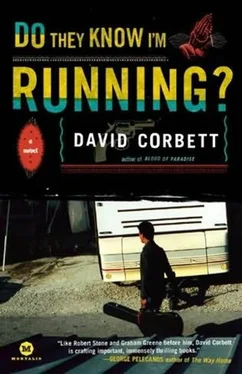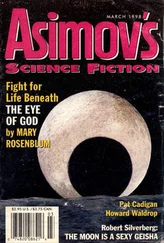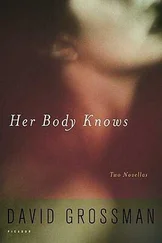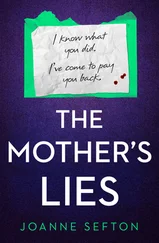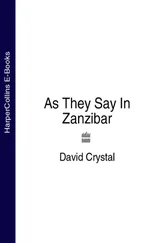The two-lane road curved gently through rock-etched hills, small cane fields, patches of dense green forest. Roque marveled at how empty the countryside was, only the occasional champa of scrap and tin, so unlike El Salvador with its crowding, its overworked land, as though a switch got thrown at the border-one moment you’re in India, the next you’re on the moon.
In the backseat, directly behind Lupe, Tío Faustino drifted in and out of a rumbling, fidgety, leg-scratching sleep. Occasionally, giving it up, he would gaze out his window and hum softly, the inevitable “Sin Ti.” From guilt, perhaps, or self-consciousness, Lupe glanced over her shoulder at him and, this was the strange part, began to hum along. Tío fought back a smile, eyes closed, humming in inadvertent harmony now, given his lamentable pitch. Finally, as though from some unspoken signal, they both began to sing, their voices barely rising above a whisper:
Sin ti
Es inútil vivir
Without you
It is useless to live
Using English, to shut Lupe out, Samir said, “Old man? You sing like a dying goat.”
Tío Faustino chuckled, then winked at Lupe.- No, my friend, I know what a dying goat sounds like. A whole truckload of them, actually. I’ll tell you about it sometime .
The car topped a steep grade, then rushed down a blind curve into a deeply gorged valley, thick with shadow. Roque didn’t spot the roadblock until too late-not soldiers, not cops. An unmarked pickup sat lengthwise in the road, right at a pinch point, the rock faces looming close to either side. There was no way to steer around. Four pistoleros , two in the truck bed, the other two on the ground, aimed their guns at the Corolla, bandannas masking their faces.
“Stop! Back up!” Samir pounded the seat behind Roque’s head. “Now! Fast!”
Roque braked, reached for the gearshift, but then one of the pistoleros , aiming skyward, fired off a shot and the air in the tight ravine cracked open with the sound. Roque froze, remembering the uneasy lack of farewells or good wishes at the chalete . Humilde had betrayed them, set them up. No, he thought. That can’t be true. Please don’t let that be true.
Samir, gripping the seat back, pulled himself forward, hissing in Roque’s ear: “I know you are afraid, but you have to do it. Now-reverse!”
The two masked men approached the car, twenty yards away, closing. Above them to either side, jags of weathered stone thrust upward, flecked with scrub. A black zanate , rousted by the gunshot from its perch on one of the overhangs, winged down and away into the swallowing darkness. Roque at last felt something turn, his hand blindly sought the gear knob, fumbled, found it-he jammed the transmission into reverse, floored the gas pedal and turned to look out through the back window as another shot rang out.
He’d gone no more than thirty yards when he realized there was a pickup behind them as well, breaking the up-road turn, barreling downhill. There were armed men standing in its truck bed too, except they had rifles, not pistols. They began firing, automatic bursts louder than the uphill pistol shots, or was that just illusion? Could terror fuck up your hearing? He felt strangely calm now, his thoughts still, his body numb, a counterweight to the visceral dread as he just kept plowing the car uphill, steering toward the inner bend of the curve, intent on dodging the downhill truck if possible, tagging it to knock the gunmen down if not. There’s your plan, he told himself, feeling a kind of pride. Everyone else in the car had ducked, he heard shouting but couldn’t make out words. Maybe there were none. Regardless, the only word he could fathom at that moment was “escape.” It floated like a goldfish in the clear bright bowl of his mind. To live is to escape, he thought as Lupe shouted, “¡Buzo!” Look out.
The downhill pickup veered to miss the up-rushing car and it was only then he realized the men with the rifles had not been firing at the Corolla at all but at the pistoleros below. Braking, he turned to look front as the riflemen routed their adversaries, two of the masked men down on the ground, clutching wounds, the other two having fled. Roque could not see beyond the pickup blocking the road; for all he knew the two who’d run were down as well.
Down, he thought. Don’t cheapen it. What you mean is dead.
The two riflemen dropped from their truck onto the asphalt, each one choosing a different wounded pistolero , and fired a three-shot burst point-blank. In a bizarre reversal of his previous deafness, Roque heard not only the shattering crack of the weapons but the church-bell ping of the ejected brass casings against the pavement. Then just as suddenly and perversely his hearing turned inward again, the pulse in his ears a hammering throb. He swallowed, the sound like a melon stuffed down a tube. The dying men had not begged for their lives. The killers had not waited for them to do so. Everyone understood everyone else. We’re all in on the secret, Roque thought, the secret called death. The two riflemen turned uphill and began walking toward the Corolla.
PEOPLE’S FRIED CHICKEN WAS THE LATEST BODY SNATCHER TO inhabit the corpse of a seventies-era burger stand in an area of Richmond called the Iron Triangle, saddest neighborhood in the area’s most homicidal city. The canted beams out front bristled with graffiti, a half-dozen bullet holes pocked the window glass. The parking lot’s asphalt buckled so badly Godo imagined some ancient tribal curse gathering force from below, trying to break through. Where better to hawk a black market AK, he thought.
Through the smeary glass he noticed that two of the black girls working the counter wore head scarves and abayas: Muslims. It was a growing subculture here, a way to detox the ghetto. He felt blindsided and not a little pissed off as he grabbed the door, following the others inside, then the smell of the place hit him. What was it Chato said? They do something weird with the chicken . Grilled meat, lemon, tamarind paste, mint, like some of the houses he’d searched in Iraq. A jolt of terror, feeling for the trip wire, waiting for the explosion, even as he knew it wouldn’t come. He checked to see no one had noticed. Wiping his palms on his shirt, he edged another step inside, let the door close behind him.
While Chato and Puchi pimp-strolled across the room to claim the corner table, Efraim went to the counter to order drinks. Godo lingered, neither here nor there, glancing up at the overhead menu and noticing the place sold only Pepsi, just like over there, Coke being linked to Zionists and the devil.
Lowering his eyes, he studied the chunky black girl in the scarf taking Efraim’s order. She had Cherokee cheeks in an otherwise perfectly round face, a laugh-line squint and a blazing smile so selfless Godo could imagine joy coming to her easily. Enviable, that. Inadvertently, he searched her face for tattoos, like the Shia women wore, and shortly not just his palms but his neck and brow were cloying with sweat.
Efraim carried the drinks on a tray to the corner table and Godo followed like a pup, sat down quickly, grabbed his Pepsi. It was oversweet but the cold was what he wanted. He finished the thing in two fierce swallows.
“The fuck, homes.” Puchi, chugging his ice with a straw. “Sucked that down like a junkie.”
Godo wiped his lips, already craving another. Out in the parking lot, two bikers wearing Nomad patches straddled hogs, gazing down into the open trunk of a BMW owned by a catlike Asian dripping gold, hair slicked back, shades despite the darkness. The conversation was quick, close, almost intimate. Maybe thirty feet away, a trio of black hood rats-more gold, worn over a dashiki, a turtleneck, a Raiders jersey-lurked behind a Mercedes SEL, apprising another set of merchandise, staring into the open trunk, listening carefully to the owner’s patter, in this case a bottle blonde in candy-red slacks and slave-maker pumps: body of a porn star, face like a dropped pie.
Читать дальше
